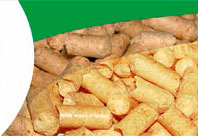Biomass Pellet Plant Funding
The Proposition
1. Executive Summary
Funding Required – USD32.5 Mio for full start up.
Ten year IRR of 22%.
Project Financials
Biomass pellets 130kt pa (after expansion in 2015)
Investment USD 32.5 Mio
EBITDA Margin 39/44 %
Ten year IRR of 22%
Note: IRR figures quoted do not include residual values at the end of the project. The project is expected to continue beyond the 10 year stated duration.
2. Introduction
An opportunity exists to invest in the early stages of a sustainable biomass production plant in Southern Africa, Mozambique. The initial phase will provide a capacity of 65,000 tones per annum of commercial quality wood pellets for use in co-fired electricity generating power plants in Europe. This capacity will increase to 130,000 tones per annum.
The area in question has suffered from a crop disease that has impacted local’s ability to farm the land. This project will remove the diseased trees with the support and efforts of the local communities. This will generate much sought after local employment.
The project scope also includes the replanting of suitable crops after the land has been cleared. The replanting will be executed in a joint venture with the plantation owners and will provide additional enduring employment in the area.
An investment of USD 32.5 Mio is required and this is expected to produce an ROI of 22% over a 10-year period. However, it is expected that the project will continue to generate revenue beyond that time. There will also be a residual value for the plant and machinery, which is not included in this ROI figure.
3. Management Team and Staffing
The project developer has a track record of delivery in the commercial field in a number of sustainable projects. The core management team has vast experience, with senior members established in the country. The pellet plant designer has specified and managed several installations throughout Europe.
The project also benefits from high-level government and community support, plus established commercial links.
4. Background
The funding being raised will enable the SPV to acquire the necessary licenses and equipment to produce up to 130,000 tones of compressed wood pellets per annum. Investment is required Q4 2012 with production scheduled to begin Q3 2013.
Wood pellets are an efficient biofuel and are becoming increasingly popular as small and large commercial organizations seek to reduce emissions in line with current legislation. These pellets can also be used as fuel for co-fired and dedicated biomass power generating plant and can reduce carbon emissions dramatically.
Samples of the wood pellets from this project have been tested both by the producer as well as through independent analysis and in both cases the calorific value has been shown to be suitable for burning as commercial biomass.
The project has access to 2,500,000 palm trees on a 27,000-hectare (ha) parcel of land. Permits are in place to remove these trees from the area. Most of these trees are either aged and not producing any significant crops, or suffering from disease and needing to be removed. Neither condition affects their suitability for conversion to wood pellets, but their removal is seen as a significant benefit and will help to eradicate the disease and enable alternative crops to be planted in their place. The local population and commercial operations support this activity.
There are additional plantations in the area suffering the same conditions. During the course of this project, permits are under negotiations and will be acquired for the additional biomass, extending this to a 20-35 year project.
Reforestation Biomass crops will be explored and planted in partnership with local land leaseholders.
The project team has also secured approval from several official bodies including the Ministry of Agriculture, Provincial Governors office, the Department of Agriculture and Agricultural Research, and representatives from an International Aid programme.
Biomass pellets are currently priced at USD180/tonne with forward prices rising to USD190/tonne for 2014 delivery. The financial planning for the entire ten year project is based on todays USD180/tonne with no planned increase. This approach is likely to understate the value of the pellets during the project timeline.
We are in discussions with an end user of the pellets and plan to have an offtake agreement in place prior to project funding being required.
In addition to the commercial aspects of the project, there will be opportunities to pass on philanthropic benefits to the local community. Business and employment in the area have been decimated by loss of harvestable crops due to the aging trees and the more recent tree disease. The tree removal process will provide sought after employment for many in the local population and will provide cash to some local families in return for non-productive trees. There will also be the opportunity to restore some of the abandoned buildings and provide such things as a school, a medical centre and shops for the local community. Additional infrastructure improvements may also be possible
5. Technology Background
The technology to support this project has been specified.
The core technology is the Pellet Plant. This is being sourced from a European manufacturer that has a proven track record of production volumes, robust operation and maintenance schedules.
Other technology and hardware to support field operations, logistics and storage have been costed into the business case.
6. Investment Summary options
90 % of investment is secured through an reputable investment fund.
1st proposed debt instrument
An offshore SPV will be created for this venture with 10 % of the shareholding being available to investors in return for the sum of USD3.2m. The principals and management team will hold the remainder of the share equity.
In support of this project, access to land, costs of the source biomass, and land at the port have been granted at very beneficial rates.
The USD32.5m investment will cover the required permits, equipment and cash flow to enable the operation to establish the Pellet Plant and run operations until income is generated in the 3rd quarter of 2013.
2nd proposed debt instrument
Attainment of a short-term 6-month loan from private investor (s) over an accrued amount of USD1.5m with an excellent interest rate of 15% p.a.
The short-term loan provider will also receive warrants to subscribe for shares or loan notes with the equivalent of the loan note subscribed. These warrants will need to be exercisable within 1 year.
7. Potential Market Size
Demand for biomass energy products will continue to exceed supply. Many companies are already committed to reducing their Green House Gas emissions whilst legislation and targets continue to be introduced. It is estimated that biomass requirements in the UK alone will rise to 60m tonnes per annum from the 1m tonnes per annum used currently.
8. Project Milestones
|
Milestone |
Planned Date |
|
Cash Drawdown |
Q4 2012 |
|
Commencement of logging and log preparation |
October 2012 |
|
Pellet plant delivered to site |
Q2 2013 |
|
Build & commission pellet plant |
Q3 2013 & Q1 2014 |
|
First finished biomass pellet produced |
Q3 2013 |
|
First shipment (15-20,000 tonnes) dispatched |
Q4 2013 |
9. Risks and Contingencies
- The pellet plant technology is ‘self contained’ and there is minimal opportunity for operator-induced breakdown.
- Secure Internet access to the pellet production system enables the installation expert to monitor production and adjust many production variables. This can be done via any internet access point.
- Regular preventative maintenance schedule is planned to prevent unnecessary down time.
- Contingency for planned maintenance and unplanned downtime has been built in with all production rates and financials being based on 74% utilization of the plant. This equates to 95 days permitted downtime per annum before planned production volumes are impacted.
- Feed stock supply is already arranged which will cover the 10 year plan period.
10. Cashflow
Total Investment USD32.5 Mio
Business Cashflow Summary will be provided after expression of interest and signing of a NDA.
City: Quelimane
Languages spoken: English, German
Address:
Contact person:
Phone:
Fax:
Mobile:







